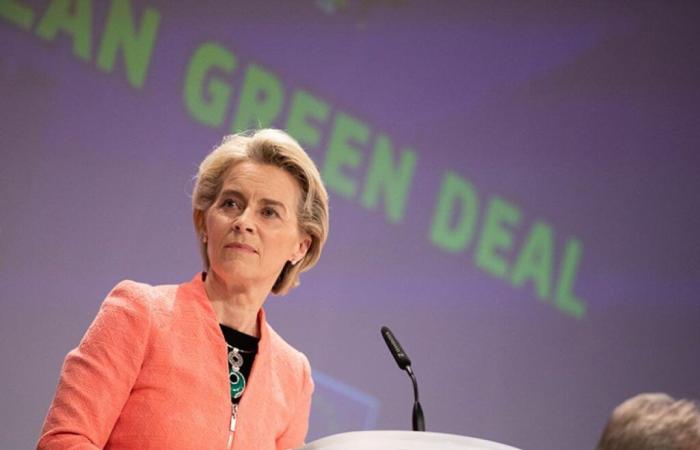Lorenzo Consoli, correspondent in Brussels for the Italian press agency Askanews, some of whose articles we relay, was one of the speakers at the “European banquet” of Save Europe, last Saturday, November 9 in Brussels. It seems relevant to us to read the opinion of one of the deans of the Brussels press rooms, who has also worked with the information teams of the Commission and the European Parliament, and Greenpeace.
Far from ambitious objectives, a paradigm shift, courageous taking of responsibilities, a call to arms, as was the case five years ago with the Green Deal: the speech with which Ursula von der Leyen had to convince the majority of the European Parliament to vote for confidence in its new Commission on November 27 in Strasbourg, showed itself to be uninspired and unconvincing. Not at all extraordinary, tired, without vision, without a flagship project that shows the way.
A new version of the Green Deal proposed by Ursula von der Leyen, the Clean Industry Act, the content of which is not yet known, will probably only be an attempt to simplify, or even deregulate, the implementation of the rules already approved for the green transition. All with few resources given that the President of the Commission does not even want to hear about new issues of common debt.
The commitment to “stay the course” on the Green Deal will soon be undermined by initiatives aimed at watering down and delaying the implementation of the regulation on reducing CO2 emissions from vehicles (with the aim of reaching zero in 2035) and by a probable distortion of the CBAM (Carbon Border Adjustment Mechanism) regulation which provides for the progressive introduction, from 2026 to 2034, of “climate taxes” on energy imports to the EU and other products from energy-intensive industries such as cement, steel, chemicals and fertilizers, from countries that do not have systems equivalent to the ETS (the European “exchange” of emission permit).
In an ideal Europe, Ursula Von der Leyen would already have a major project on the table for the next five years of her mandate if she really intended to fully follow up, with concrete, ambitious and consistent measures, the Draghi and Letta reports on future of the European Union. European competitiveness and the continued development of the single market, without using it as an “a la carte” menu, in which you can only take a few items of your choice, ignoring or discarding the others.
We can already predict that there will be a lack of political will on the part of the Commission and the Member States to finally implement a real European industrial policy. And that there will be a lack of financing, both public and private, to finance the enormous investments necessary for the green transition while remaining competitive, according to Mario Draghi's recommendations. Ultimately, one can predict, the (good) recommendation to simplify bureaucratic burdens for businesses will be primarily taken up, but interpreted (wrongly) as a call for deregulation.
Meanwhile, the confrontation is brewing between the two components of the “enlarged Ursula von der Leyen majority” which exceptionally voted for confidence, that of the center-left (S&D and Renew and Greens) and that of the center-right (EPP and ECR), a true unicorn which is unlikely to recur during votes on European legislation. We will see the “Venezuelan majority” again, that is to say an EPP-ECR alliance supported from the outside by the voices of the far-right groups of sovereignists (ESN) and “Patriots” (PFE). First whenever the opportunity arises to reverse course on the Green Deal, but soon also and above all on questions of immigration and asylum.
The rest of the article can be read on Askanews. Find a translator from Italian to French here.






